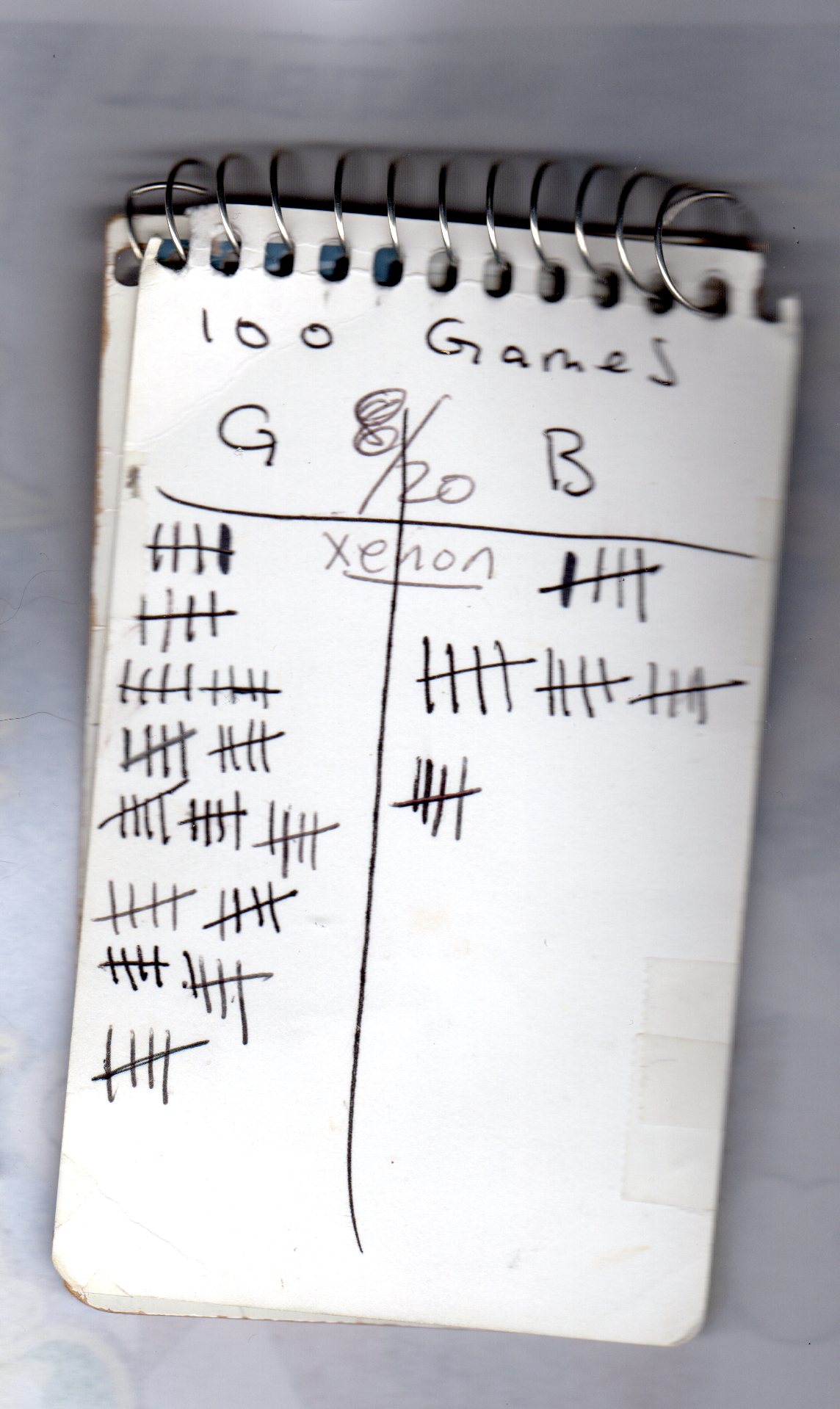An Interview with Math Professor Luke
BB: X = a player. Z = the number of games played. Y = the number of games needed to win. Can you write this out in math? Basically, for the best two out of three, three out of five, etc. This is for a two player pinball tournament article in Skill Shot.
Luke: Hey skipper! I can do my best. Let’s see here. You want to play an odd number of games, so things can’t end in a tie, so for some number n, Z = 2n+1. (That is, we can let n be any whole number we want, and then Z will be the n-th odd number; if n=1 we get Z=3games, if n=2 we get Z=5 games, and so on.) So then it’ll takeY=n+1 games to win. I introduced n as a convenience, but we can easily remove it now. As we see, Z = 2Y-1, or equivalently, Y = (Z+1)/2. Does that help?
BB: AWESOME!!!
Luke: I’m glad all those years I spent in grad school weren’t wasted after all! How’s it all going, mister?
BB: It’s going great. Working on Skill Shot 16. So Gordon and I played a 2-player 100 game pinball tournament. It took about a week, and he won 71, I won 29. Afterwards, we played a 10 game tournament, and I won 6, he won 4. So 100 games or 10, we’re still close in skill. How’s your life?
G2: Hi Luke. We need another pinball equation for determining a fraction or percentage of a pinball tournament where it is possible to have a tie score. For example: If player X and player Y played 100games of pinball, the equation would express the results as percentages. The equation could also be used in a tournament of 8games or 7 or whatever. We’re thinking about calling the article “Percentages”. It would help people rank themselves.
Luke: Hey Gord! Let’s see here. Suppose you play a total of T games (100, or 8, or 7, or whatever) and win X of them. Then you’ve won100*X/T percent of your games. We can turn any fraction into a percentage this way, just by multiplying by 100: 0.6 or 6/10 is the same as 60%, etc. Just type 100*X/T into Google and press enter (replacing X and T with the actual numbers, of course) and it’ll even do the computation for you. I freaking love Google.
BB: Hey Luke, one more question. Do these equations apply to tournaments with more than 2 players?
Luke: Oh! Good question! The percentage one, definitely. In a tournament, if there are T games played in all, and a certain player wins X of them, he’s won 100X/T percent of all games in the tournament. If a certain player wins X games and that same player plays a total of say D games (maybe he doesn’t play every single game in the tournament; if there are a total of say 30 games in the tournament but this player only plays in 10 of them, then T=30 butD=10) then he’s won 100X/D percent of the games he’s (or she’s) personally played.
The formula for the number of games required to win will still work in a multi-player tournament, *if* a single player has to win more than half of all games to win the tournament. If you just have to win more games than any other player it’d become a lot more complicated! I’ll have to think about that one.
BB: Anyway, this type of tournament isn’t really all about winning, it’s more of a way to rate your skill against other players. I mean, winning is great, but every game has to be played, even after one player has won the number of games required to beat the other(s). In the 100game tournament, Gordon and I played all 100 games, long after he had already won the tournament by winning 51.



